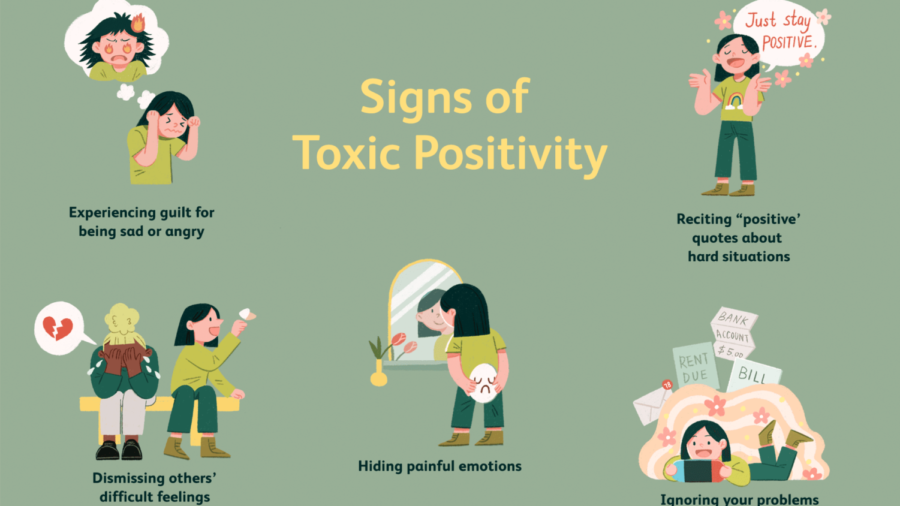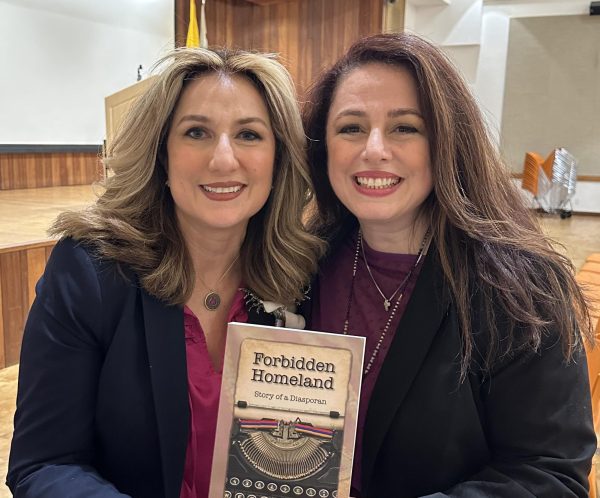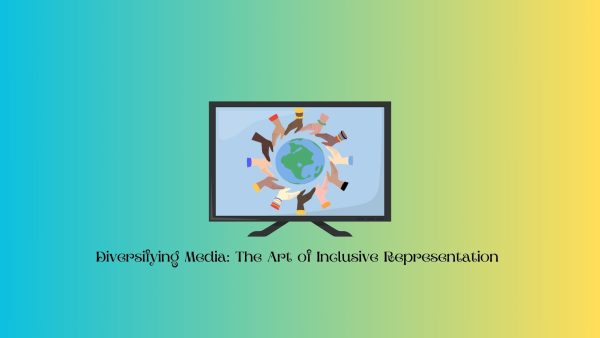Why Telling Someone to be Positive Isn’t Always the Best Idea
Toxic positivity is something almost everyone has experienced in their lives, and can unintentionally invalidate people’s emotions and make the situation worse.
December 14, 2021
There will always be a time in the world when someone is sad or not having the best day. To many, it may seem hard to decide how to help them, so they put out phrases they find encouraging such as “think positive” to attempt to help them, but these phrases may actually do more harm than good, and are known as toxic positivity.
Toxic positivity is best described as “dismissing negative emotions and responding to distress with false reassurances rather than empathy” (UW Medicine). Though it often comes from someone with good intentions, it often drives people away and doesn’t make a connection with the person who is struggling. As Abigail Lee (10) explains it, it “invalidates a person’s struggles, as it may come off as telling them that their problem is an issue that can be fixed with a change in their mindset rather than acknowledging the depth of the issue or the fact that their issue might be caused by things that are out of their control.”
Under this mindset, toxic positivity is often a form of wishful thinking by thinking anything can be made positive, but in reality, not everything in life can be made positive. People could be struggling with situations that deeply impact them, and Abigail Lee (10) emphasizes how “telling people who are struggling with grave issues such as mental health, bullying or abuse to simply “stay positive” can be extremely detrimental. Although it can be good to look at the positive side of things, “positive” emotions simply can’t be dictated by someone else.” As a result, this use of wishful thinking prevents both people in the situation from growing. To fix this, the person helping someone should practice becoming more empathetic.
Becoming empathetic emphasizes the importance of listening to someone’s story rather than just brushing it off with positive comments, as they are not only cliché and overused, but it doesn’t get the situation any closer to being solved. You are also shutting them down when they are in a vulnerable spot and need someone to listen to them, making them feel more distressed. This is often done with the intention to help the other person and not to make them feel worse, but it is a very surface-level way of dealing with a problem and doesn’t actually fix it (thepsychologygroup).
“Telling people who are struggling with grave issues such as mental health, bullying or abuse to simply “stay positive” can be extremely detrimental. Although it can be good to look at the positive side of things, “positive” emotions simply can’t be dictated by someone else. — Abigail Lee (10)
If you are still struggling to figure out what to say, rewording common phrases can be a great solution. For example, instead of saying “stay positive,” say “describe what you’re feeling, I’m listening” (thepsychologygroup). This shows that you are acknowledging that their emotions are valid, and once you hear what they have to say you can further help them in some areas.
Not only does toxic positivity happen when helping people in a situation, but it can happen in our daily lives. For example, people may want to think positive all the time thinking it will improve their quality of life. However, this suppresses natural emotions of fear, anger, and jealousy, and can over time overflow and bring a lot of stress after trying to be so perfect and unrealistic. Of course, there will always be a time where you can’t show your emotions, such as you being jealous of a person or being mad in public, so finding a balance between showing your emotions and being positive can help you function well in society and be at peace with yourself.
With the confusion surrounding toxic positivity and how often it occurs, many people don’t realize how negatively it can impact people, and therefore continue to do it thinking it is a good deed they are doing. Through this, it is best to understand that although being positive is very important, being realistic is too, and it shows maturity to understand that a few simple words will not fix everything.























